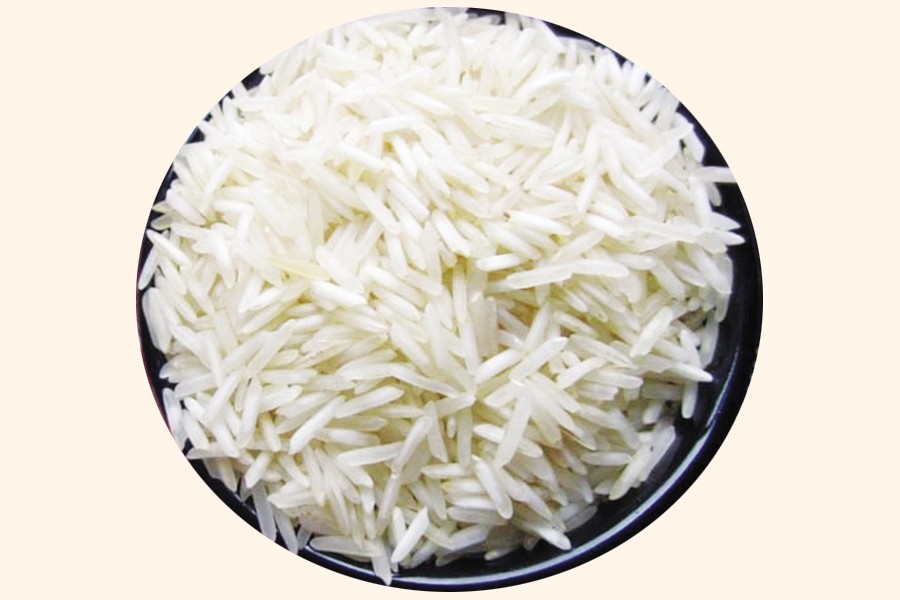Aromatic rice exporters suffer blow as govt 'abruptly' bans export

Published :
Updated :

Bangladesh has imposed an indefinite ban on all kinds of rice exports, including aromatic varieties, just three months after giving permission for it.
The decision has been taken as a precautionary measure to ensure better food security in the country.
But rice exporters, who had just started shipping aromatic rice after a long pause, observed the decision as "abrupt", leading to a "business blow". They have requested the authorities to consider allowing the rest of the export that has already been permitted.
Exporters say that the ban will lead to a loss of millions of dollars in foreign exchange earnings and damage the country's reputation as a reliable supplier of aromatic rice.
In response, officials said the ban is temporary and it will be lifted once the country's rice production has improved.
On October 17, 2023, the Ministry of Agriculture, in consultation with the Ministry of Food, imposed the export ban.
In recent months, the prices of aromatic rice in the local market have reached an all-time high, with branded Kalijira and Chinigura varieties retailing at Tk 170-180 per kg, according to grocery stores in the city.
A senior official at the Ministry of Agriculture said the Food Policy and Monitoring Committee, chaired by the Food Minister, decided to halt all rice exports on October 8, 2023, from a food security perspective.
A meeting of the Ministry of Agriculture, chaired by the minister, on September 10, 2023, also recommended a ban on rice exports. The decision was made based on the recommendations of the two ministries, the official said.
He said exports may be permitted after the start of the Aman paddy harvest and an assessment of production levels.
Meanwhile, the Bangladesh Agro Processors Association (BAPA) has written a letter to the Ministry of Agriculture requesting it to reconsider the ban.
The letter, signed by BAPA Secretary Iqtadul Islam, said that after a long pause, the government recently granted permission to many BAPA members to export 24,416 tonnes of aromatic rice, with the validity of the permission extending to June 2024.
The letter states the companies that received permission in 2021 were considered by the Commerce Ministry in this regard. Following the government's approval, the companies started fetching the global market and received large rice orders.
"We have just started shipment, as only 10-12 per cent of the fixed exports have been made, but the Plant Quarantine Wing has stopped issuing phytosanitary certificates," the letter said.
"Such a ban will cause us to lose our established market and many companies will incur losses as they ship rice with other products," the letter adds.
The letter requests the Ministry of Agriculture to consider issuing Plant Quarantine certificates for the remaining rice that was permitted by the government in July.
Iqtadul Haque said that the volume of permitted aromatic rice is less than 2.0 per cent of the country's total production.
Contacted, Dr Mafizul Islam, deputy director of the Plant Quarantine Wing, told the FE that they have stopped issuing the certificate as per the directives of the Ministry of Agriculture.
He said that so far, 3,700 tonnes of rice have been exported by the companies.
According to BAPA, Pran is leading the shipment with 1,728 tonnes, against its permission of 1,947 tonnes.
Parvez Saiful Islam of Square Food and Beverage said they received permission to ship 3,000 tonnes but have so far only shipped 600 tonnes. "We have another order for 700 tonnes, but we couldn't get a phytosanitary certificate," he said.
"The loss will be multiple, as we send rice with a bunch of other dry products in a package, following the demand from our buyers," he said. He said exporters could now get $1,600-$2,000 per tonne of Bangladeshi aromatic rice.
Another exporter told the FE that the remaining stuck consignments could bring at least $33 million in this critical period of time when the economy is experiencing a severe foreign exchange shortage.
Contacted, Additional Commerce Secretary Abdur Rahim Khan told the FE that food safety precautions had forced the government to impose the ban for a period.
He said a meeting involving the three concerned ministries (Agriculture, Food, and Commerce) would be held based on necessity.
"The country's rice availability is now in good condition," he said. "I expect we could permit export again in the coming harvesting months if production remains healthy."
Farm economist and value chain expert Professor Rashidul Hasan said the export ban on rice by major exporters like India has forced many countries to restrict their shipments of strategic food products.
He said Bangladesh is also struggling to source rice from the global market amid a significant hike in prices as well as a possible decline in global production. These factors may have prompted the country to halt exports of any kind of rice for now.
He said prices of aromatic rice have also shown a 40-60 per cent increase in the domestic market in the last one year, which may also have been considered.
The value chain expert said the maximum retail price of Chinigura rice is now Tk 180 per packet, up from Tk 125-130 per kg a year ago.
According to the Department of Agricultural Extension (DAE), Bangladesh produces 1.8-1.9 million tonnes of aromatic rice, of which it exports only 9,000-10,000 tonnes.
tonmoy.wardad@gmail.com, rezamumu@gmail.com


 For all latest news, follow The Financial Express Google News channel.
For all latest news, follow The Financial Express Google News channel.